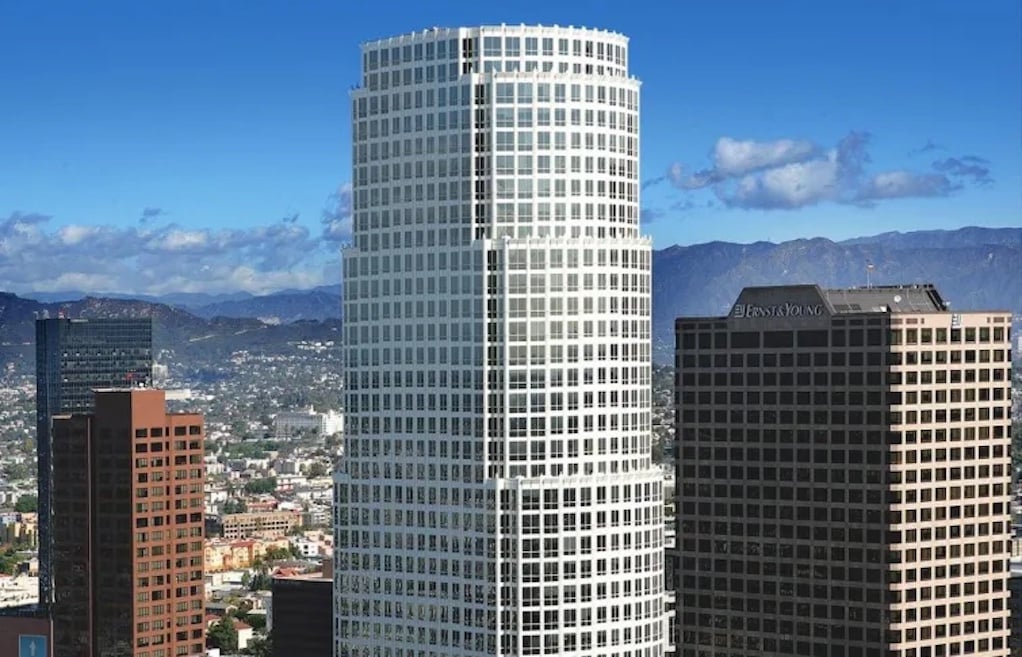It’s appearing more and more certain that the work from home revolution has indefinitely stunted the commercial real estate industry.
But all the speculation and rumors of the last few months can’t match hard action like a major landlord defaulting on almost $1 Billion of loans in a metropolitan hub. Now, commercial real estate professionals across the country are worried (and rightfully so) that rising CRE loans have started a nasty runaway cycle that can’t be stopped. More landlord defaults are likely coming and huge names in real estate are bracing for impact if they haven’t already done so.
So read on to learn about the latest issue spurred from the recession, rising interest rates, and overall weak demand. Landlord defaults are on the rise, are you ready?
Reeling from the Office Apocalypse
At what point does everyone agree that the hybrid work phenomenon is not a fad, but a systematic restructuring of industry?
Unfortunately for commercial landlords, that reckoning may be finally here. While many hoped that a fully in-person work schedule would gradually return, office occupancy rates are still stalled. Three years following the initial closures, offices visits have plateaued at around 50% what they were pre-pandemic. And unfortunately, as the country just hit a new high for office vacancy rates (18.7%), it doesn’t look hopeful on the horizon. The wasted space dilemma is projected to worsen in the next decade. These tectonic plate shifts are irreversible.
|
“There will be more than 1.1B SF of vacant office space in the U.S. by the end of the decade.” -BisNow |
As if this wasn’t bad enough for commercial landlords, they’re also feeling the heat from rising interest rates and inflation. All said and done, for many property owners, their commercial buildings have transformed into potential liabilities. And shocking as it may seem, many big players are not waiting around for the other shoe to drop.
Commercial Landlord Debts and Defaults are Rising
With so much doom and gloom predicted to come for landlords, it’s not a surprise that the time has come for many to hand back the keys. But what is surprising in this situation is the sheer breadth of those wanting out.
According to Business Insider, “Brookfield Asset Management, which has more than $725 billion in assets under management as of last year, defaulted on over $784 million in debt that underpins two Los Angeles office towers this month.”

1 Million Square Foot Tower at 777 South Figueroa Street, Previously owned by Brookfield.
But they’re not the only ones defaulting on their loans, and with 24% of commercial real estate loans coming due in the next year (a majority comprised of office loans) the issue is projected to become far more commonplace. This is especially so, since rising interest rates and inflation have significantly driven up the cost of debt for commercial landlords.
|
“Debt costs are up 40% to 50% for some owners whose loans are maturing, causing a seismic shift to underwriting and turning some buildings with a healthy cash flow into risks.” -Stephen Buschbom, Trepp's director of research |
What’s so significant about this is the sheer sum of money entangled in these loans. For instance, while 24% (of loans upcoming) may not initially seem to have severe ramifications, in New York City alone, there is $16 billion of loans set to mature this year. According to Metro Manhattan, this represents a 30% year-over-year increase.
So, major landlords defaulting on their loans has severe implications on the greater economy. And the cost of such loans is rising.
Weak Investor Interest in CRE
Clearly, commercial real estate investors are also sitting on the edge of their seats, antsy for an out while they can still take it. Because weak demand and an overall cooling market has investors looking for an escape hatch- and no company is safe, no matter its breadth.
Not even a behemoth in the real estate sector like Blackstone is immune. Back in December, their $69 billion unlisted real estate income trust (REIT) was bombarded by withdrawal requests which triggered pre-set limits on redemptions. According to Reuters, “it received redemption requests in November greater than 2% of its monthly net asset value and 5% of its quarterly net asset value.”

As a result, Blackstone was forced to put a freeze on further withdrawals, only allowing less than half of the investors repurchase requests. Still the 43% of requests that went through were totaled to about $1.3 billion.
Slowing interest in the REIT, which represents about 17% of Blackstone's earnings, signals trouble on the horizon. Since Blackstone is one of the largest global owners of real estate, their moves speak to greater forces at play. The world pays attention to their CRE decisions. And If investors are pulling out of forces like Blackstone, they see less long-term stability in real estate asset class overall.
So, this doesn't only threaten Blackstone’s status as a titan of CRE, but rather points to a harbinger of darker things to come given the continued, elevated interest rates.
How Corporate Tenants are Affected by Defaults
Let’s recap: Since companies have been closing offices or subleasing extra space, record vacancy rates have CRE property owners in a chokehold. With so much cheap, empty space on the market, they have to significantly reduce their profit margin by getting more competitive to lure in long-term tenants. This means that even if they find that perfect, credit-worthy tenant, they should be prepared to shell out a hefty tenant improvement allowance and lure them in with a low base rent.
Obviously, this has stunted their business and forced them to take on more debt than many can carry. Now, in an unprecedented scenario, major real estate holders are defaulting on their loans and investors are looking for more sensible opportunities.

On the inverse, this has given corporate tenants to negotiate for better terms and prices for their leases.
The rising defaults and waning investor interest will likely continue this cycle, at least for the near future until landlords and banks can reorient their priorities and operations. Because, according to Business Insider, the defaults have led to a devaluation of commercial property types. “Near Seattle, the Gateway One office in Bellevue sold for $34 million, down 32% from its $50 million sale in 2019, while Columbia Property sold 149 Madison Avenue in Manhattan for $77 million, 12.5% below what they bought it for in 2017.”
The significant blow sustained to the overall value of commercial real estate properties is predicted to intensify into 2023 and beyond. This means corporate tenants are still positioned to negotiate a strong deal and save possibly millions over the course of a lease term.
If the Bank Takes Over Your Lease
The other point to mention in relation to corporate tenants is the possibility that a bank may take over their lease. In the event that your landlord defaults, you may be straddled by new ownership.
This can have implications on everything from decision-making processes to the upkeep of your maintenance and essential services. Of course, if this happens, the circumstances will be highly unique to your situation. But regardless, that is why it is so critical to fundamentally outline the terms of your lease in negotiation. You never want to be in a vulnerable position where your best interest is sacrificed should your relationship with your original landlord be implicated. And that’s why Tenant Representatives are so essential to corporate tenants.
Protect Your Interests with a Tenant Rep
Tenant Representatives are CRE negotiation experts that solely work for the rights of tenants. In this case, they’ll ensure that the terms you want make it into your lease and you’ll maintain your rights in the case of new ownership.
But this isn’t the only reason their service is essential for tenants right now.
With investor dollars at stake and recession rumors swirling, the emphasis on CRE spending is more important than ever. Any organization can benefit from making their CRE a more efficient expense, especially now. With skyrocketing inflation, wasted money adds up…. Fast. And who has slashing CRE expenses down to a science? The True Tenant Reps™ at iOptimize Realty®.
As negotiation experts, they have the background to go head-to-head with your landlord and their broker. They are prepared to skillfully leverage the value of your tenancy against market benchmarks and comparable sites. All said and done, you can save millions on your corporate real estate- and you won’t even need to lift a finger.
So, position your portfolio to weather the storm. Corporate tenants have the power to reduce spending by getting tighter with their utilization metrics, renegotiating the terms and prices of their leases, and relocating to more business-friendly areas. Talk to a Tenant Rep™ at iOptimize Realty® today to learn how to make it happen.








